
5 Unbelievable Things Epsom Salt Does For Tomato Plants Growing
Soil & Compost Fertilizers Soil Improvement Basics Accessible Gardens Gardening Tips Hydroponics Raised Bed Gardening Seeds Plant Problems Product Reviews Trying to figure out if you should put some epsom salt on your tomatoes in your garden this season, but aren't sure if epsom salt is good or bad for tomatoes?
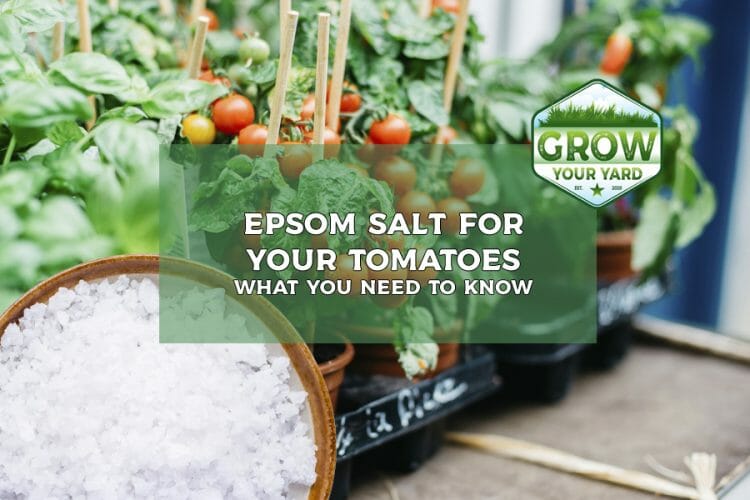
Epsom Salt for Tomatoes How and Why They're Amazing for Tomatoes
Image credits: Martina Unbehauen via Shutterstock. Sprinkle 1 tablespoon of Epsom salts around the base of each tomato plant. Spread it evenly and don't forget any areas. For a foliar spray, dissolve 1 tablespoon in 1 gallon of water. Make sure to get both sides of the leaves with an even coating.
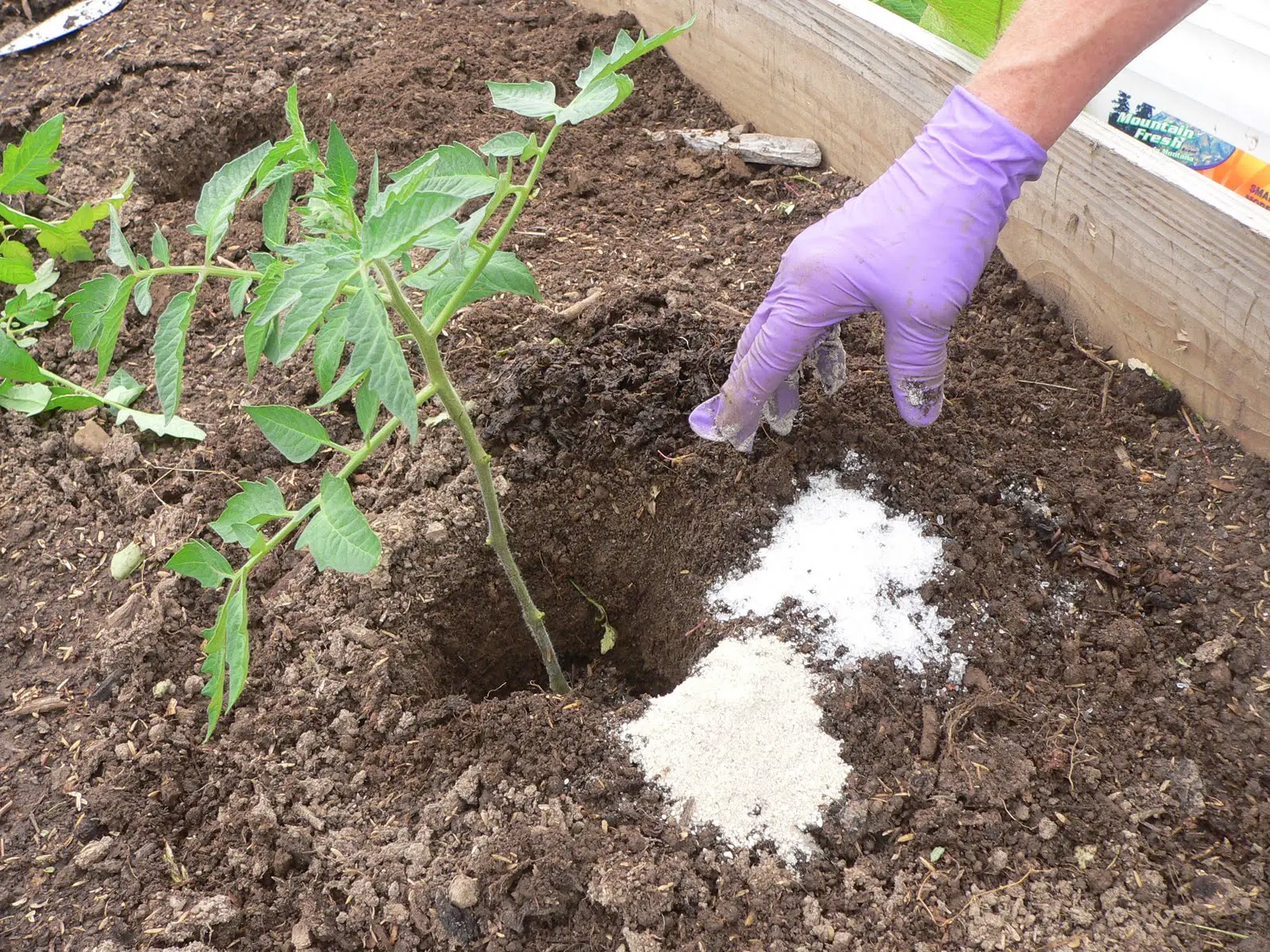
Epsom Salts a Natural Fertilizer for Tomatoes
The recommended dosing for Epsom salts is 1-2 tablespoons of Epsom salt per 1 gallon of water and use as a foliar spray or apply to soil every 2-4 weeks. For direct application in the garden when planting tomatoes, apply 1 cup of Epsom salt per 100 square feet and water it in. Can you put too much Epsom salt on tomato plants?

10 Incredible Epsom Salt Uses For Your Plants & Garden Garden
by Jeff Rosenbaum | Oct 23, 2022 | Tomato Care. Epsom salt can be used as a fertilizer for tomato plants. It is high in magnesium, which is an essential nutrient for tomatoes. The recommended rate of application is 1 tablespoon per gallon of water. Apply the solution to the soil around the base of the plant. Apply it every two weeks or as needed.

Why Use Epsom Salt for Tomato Plants Happy DIY Home
| Updated on March 21, 2021 Epsom has long since decades ago been used in gardens. At the peak season of summer, you'd expect to harvest ripe tomatoes that have no patches on the skin. A bigger and tastier yield, however, would be hard to achieve if the soil your tomatoes are sitting on has magnesium or sulfur deficiency.

Epsom Salt For Tomato Plants Makes Sweeter Tastier Tomatoes Organic
Last Updated: April 7, 2023 Epsom salt has long been touted as a quick fix for basically anything in the garden. I've seen it said that it can fix blossom end rot, stunted plant growth, yellowing leaves, and more in tomato plants. Well, not to ruin your day, but epsom salt is more likely to harm your tomatoes than help them.

Why Use Epsom Salt for Tomato Plants Happy DIY Home
To use Epsom salt on tomato plants, simply mix a tablespoon of Epsom salt in a gallon of water and apply the solution to the soil around the base of the plant. Repeat this once every two weeks throughout the growing season to ensure that the plants continue to receive the necessary micronutrients. With regular use of Epsom salt, gardeners can.

Epsom Salts In Tomato Plants
Use Epsom Salt to boosts up your tomato yield and maintain plants leafy and bushy in late-season. Just add Epsom salt to the soil to germinate beginning in the season, and to limit initial root and cell growth, photosynthesis, plant growth and blooming rot.

Epsom Salt On Tomato Plants Plants BB
Using Epsom salt to help your tomato plants thrive isn't complicated. It requires just a few basic steps and supplies to get started. To use Epsom salt when planting tomatoes, you first need to mix two tablespoons of the salt with a gallon of water. You can use a watering can to make sure the mixture is evenly dispersed.

5 Unbelievable Things Epsom Salt Does For Tomato Plants Epsom salt
#1 For Potted Tomatoes #2 When First Planting Tomato Seedlings #3 Tomato Plant Maintenance #4 Applying Epsom Salt As A Soil Drench OR A Foliar Spray What To Expect When Applying Epsom Salts For Tomatoes What Is Epsom Salt? First of all, Epsom salt is not salt. It is NOT the table salt you put on your food!
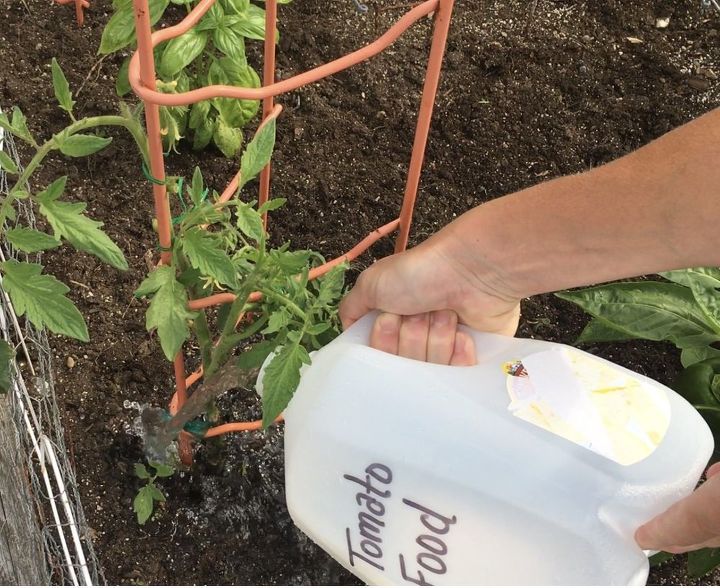
Epsom Salt for Your Plants Inside and Out Hometalk
What Epsom Salt Can Do For Tomato Plants 1. Fix yellowing leaves The sight of yellow leaves can be stressful for a tomato gardener. There are multiple reasons for yellowing leaves on tomato plants - incorrect watering, fungal disease, pest problems - that can either be easy fixes or signal the imminent demise of your plant.

Why is Epsom Salt/Magnesium Sulfate Good For Tomato & Vegetable Plants
Epsom salt is a naturally occurring mineral that contains magnesium and sulfate. The industrial magnesium sulfate gets its more popular name, Epsom, from a town in London where the chemical compound was first discovered. Like the human body, sometimes plants lack certain nutrients as well.

Using Epsom Salt on Tomato Plants Epsom salt for tomatoes, Tomato
Epsom salt acts as a natural vitamin and fertilizer on tomato plants. Indeed, it is a natural nutrient that strengthens the roots and helps plants absorb chlorophyll and regenerate quickly. In this post, we'll see what Epsom salt or magnesium sulfate does to tomato plants and what it cannot do.

Epsom Salt For Tomatoes Why Is Epsom Good For Tomato Plants?
#1. Enhances Photosynthesis. Epsom salt contains magnesium which aids in chlorophyll production in plants. It is very essential to the tomato plant because it enhances photosynthesis or the manner in which the plants breathe. They breathe in carbon dioxide and takes out oxygen.
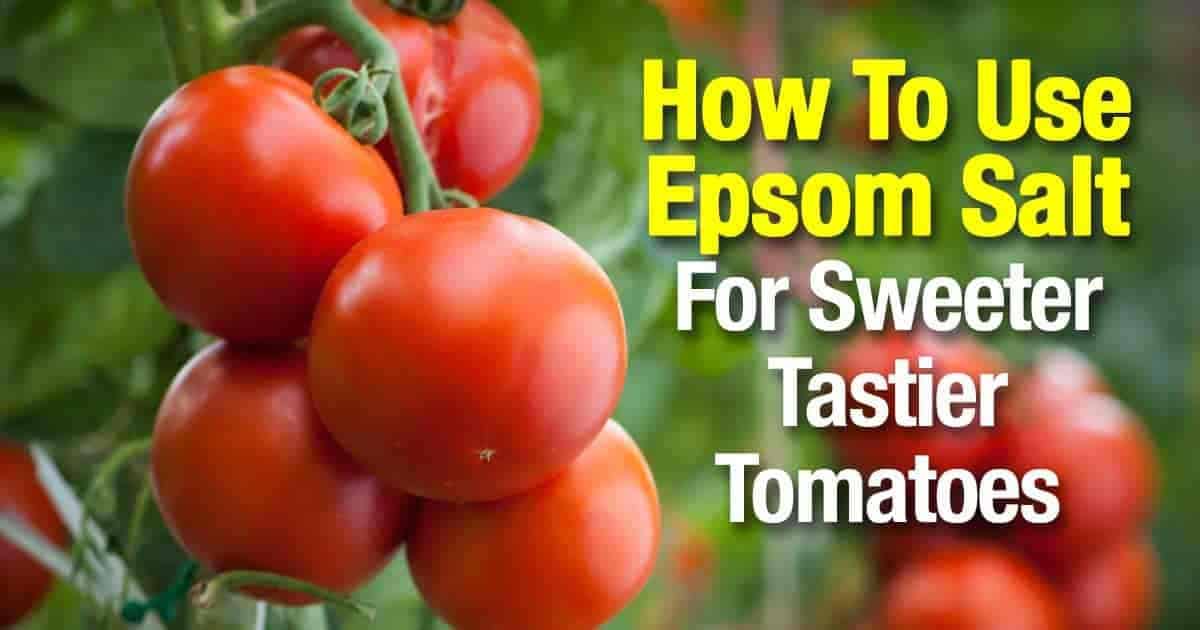
Epsom Salt For Tomatoes Make Them Sweeter and Tastier
Fertilizing with Epsom salt is an easy and effective way to encourage healthy growth and bountiful fruit production from your tomato plants. Epsom salt is a compound composed of magnesium, sulfur, and oxygen. Tomato growers use it to improve the soil. It is impossible to obtain all of the necessary elements in Epsom salts.
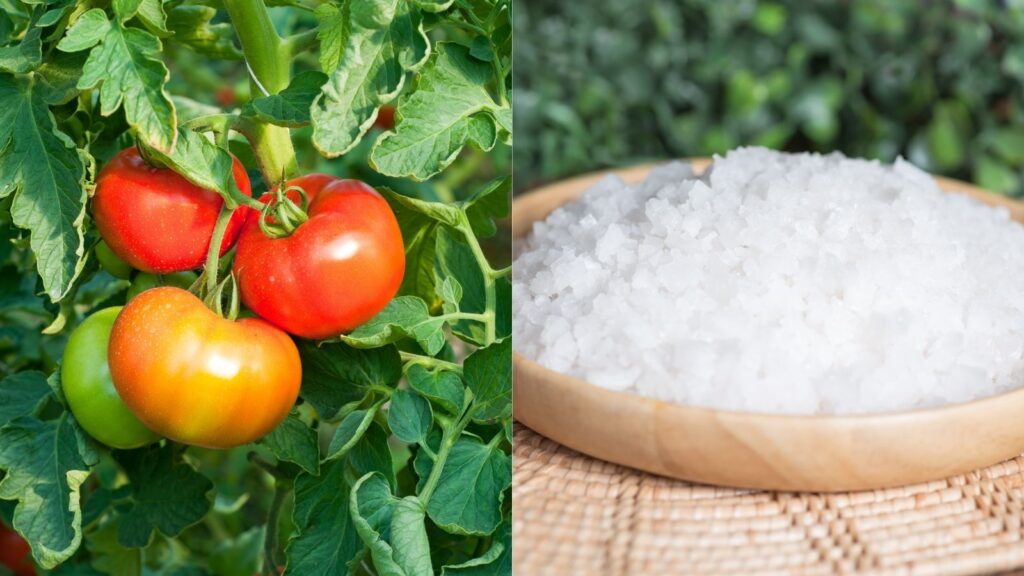
Why Use Epsom Salt for Tomato Plants Garden Beds
To plant tomato seeds, first sprinkle 1 tablespoon Epsom salt in the planting hole and work into the soil. Using a tank sprayer, combine salt and water in a gallon of water. If you use more than once per month, use 1 tablespoon of salts per gallon; if you only use once per month, use 2 tablespoons.